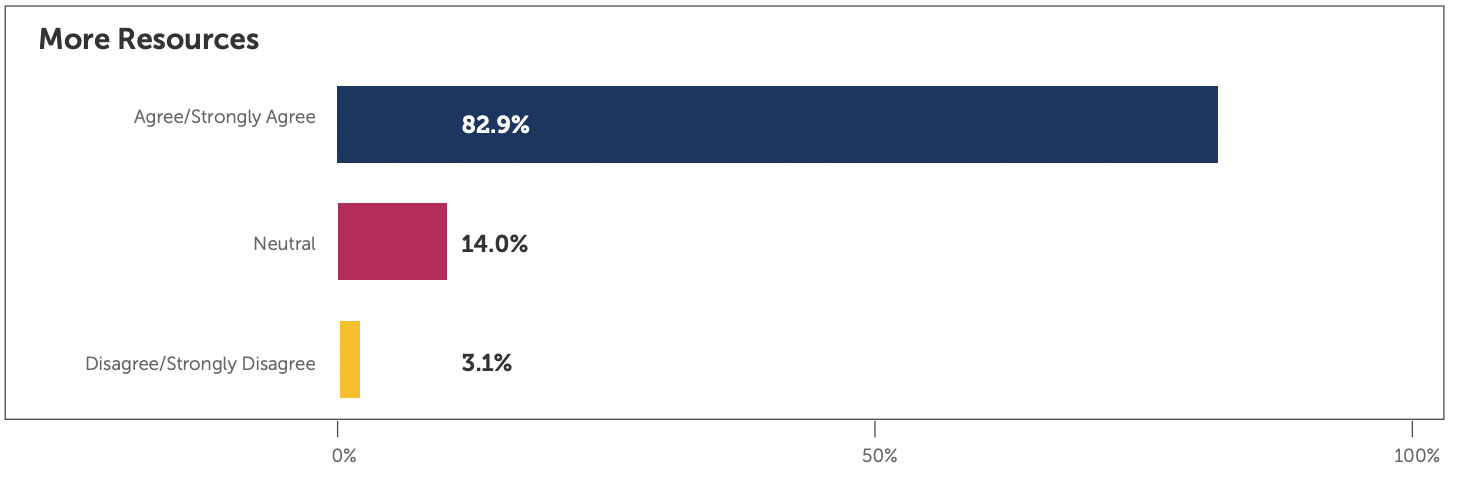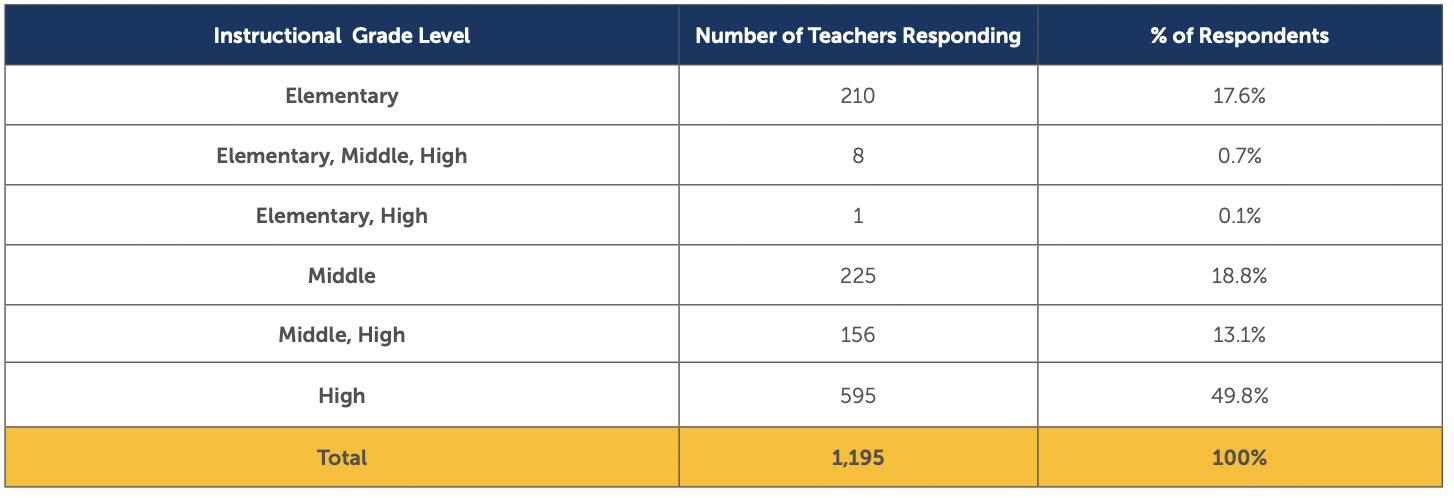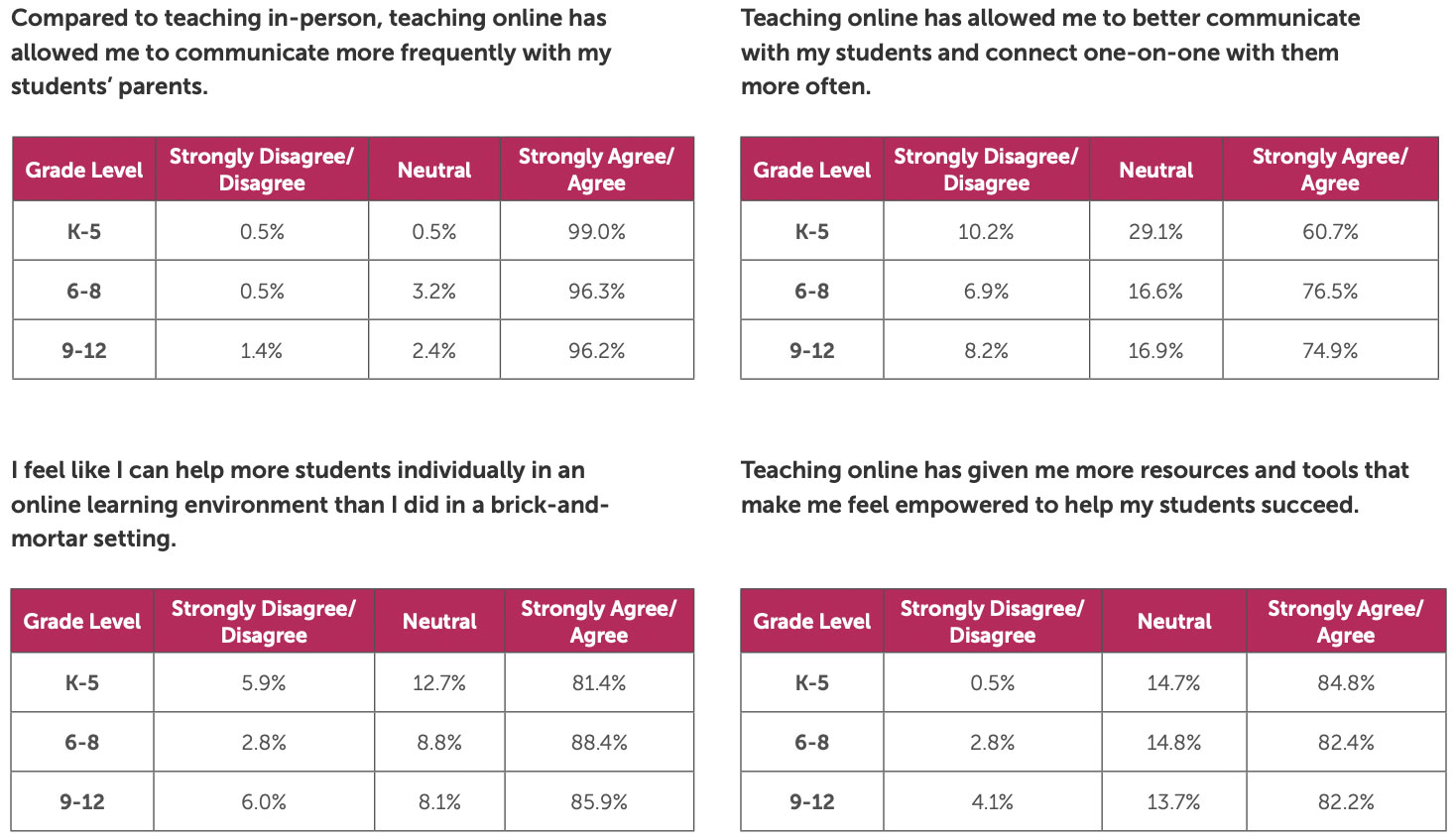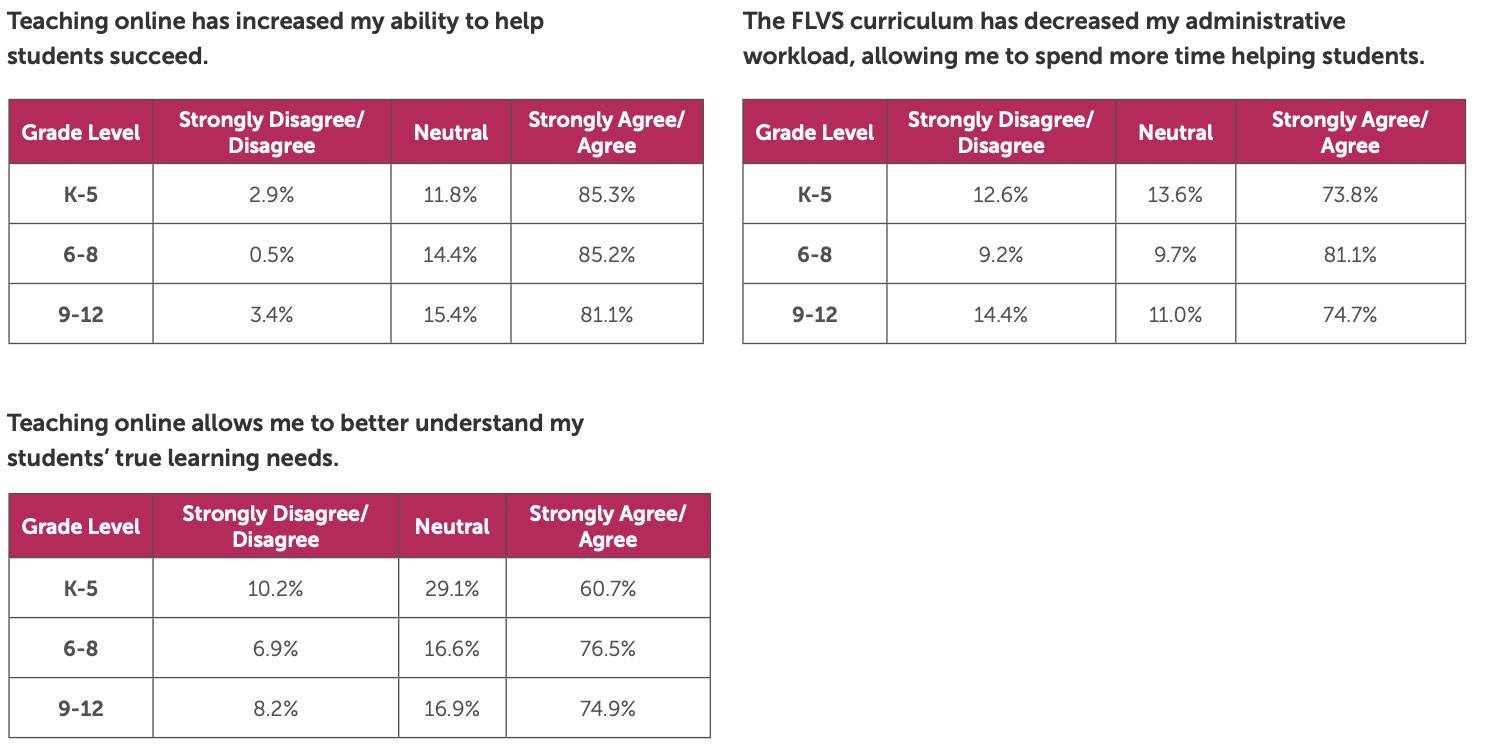2021 Teacher Survey

2021 Teacher Survey
Survey finds that teachers believe teaching online allows them to better communicate with their students, providing opportunities to connect with them one-on-one more often than in a brick-and-mortar teaching environment.
Executive Summary
A survey conducted by Florida Virtual School (FLVS) in August 2021 revealed that online teachers feel they can better connect with students and parents in an online setting when compared to in-person instruction – allowing them to offer more individualized attention and understand their true learning needs.
While the past few years have challenged educators everywhere, it also showed teachers the benefits of virtual learning. In fact, according to the survey that was deployed to Florida Virtual School teachers across grades Kindergarten-12, 87% of them agree that teaching online allows them to better communicate and connect one-on-one with students when compared to the brick-and-mortar setting. The following sections detail this survey and the important insights it conveyed.
Background and Purpose
In early 2021, some survey findings indicated increased stressors in the teaching profession, particularly for those managing remote teaching due to the pandemic (see, for example, the RAND Corporation’s findings). Florida Virtual School deployed its own survey to illustrate how teacher experiences from an established online education program are very different from the emergency remote teaching experienced during the pandemic (see the 2022 Digital Learning Snapshot for more details on these differences).
Survey Method
The 15-question survey was administered to all Florida Virtual School teachers across all grade levels to gather their perspectives on teaching in an online school environment. Teachers had a wide range of experience with online instruction, from less than one year to 10 years or more. The survey included open and close-ended questions, including questions with Likert-type ratings. Responses of strongly agree/agree, and strongly disagree/disagree were combined for reporting purposes. Percentages may not total 100% due to rounding.
Findings and Implications
Compared to their experience teaching in a brick-and-mortar setting, teachers rated their experience teaching online in the following ways:
Findings: More than 96% of teachers agreed that teaching online has allowed them to communicate more frequently with their students’ parents as compared to teaching in person.











Closing Thoughts
Teachers believe online teaching benefits their relationships with students and their ability to provide personalized learning that meets their individual needs.
